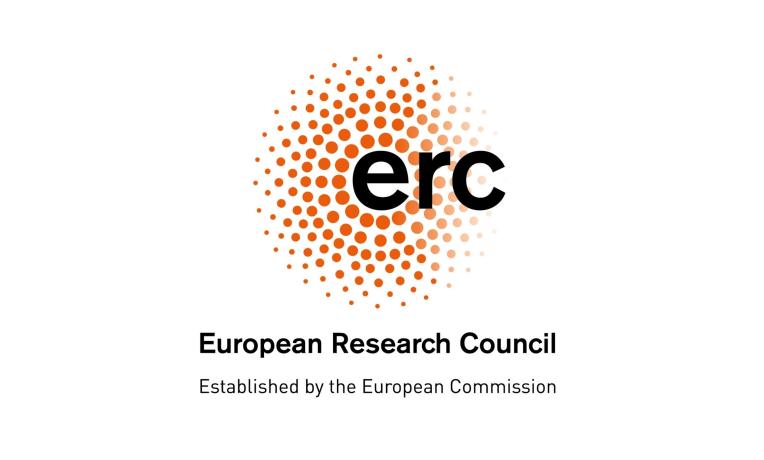Consolidator Grants - Women gain ground in €655 million frontier research funding package

How can we make patent-free and improved equivalents to existing medicines? Is “on-demand” vaccine development the only feasible option to combat unpredictable infections, such as those causing viral pandemics? What is the key to understanding how the collective memories and legacies of historic empires are created? Why is knowing more about the molecular cause for elephants’ long pregnancies so important? 327 laureates awarded the 2020 European Research Council (ERC) Consolidator Grants will now be able to tackle these and other big scientific questions at research centres across Europe.
The ERC today announced the winners of its latest Consolidator Grant competition for mid-career researchers. The funding is part of the EU’s current research and innovation programme, Horizon 2020, and worth in total €655 million. With this support, the new grantees will be able to consolidate their teams and have far-reaching impact.
On this occasion, Mariya Gabriel, European Commissioner for Innovation, Research, Culture, Education and Youth, said: “Congratulations to all this year’s ERC Consolidator Grant laureates - all selected solely based on excellence. While there is still progress to be made worldwide in achieving gender balance, I am pleased to note that there is an upward trend in women applying for this ERC scheme. We can also see that in this ERC competition the proportion of female applicants who were successful is the highest ever achieved - higher than that of male applicants.”
ERC President Professor Jean-Pierre Bourguignon, commented: “This funding not only empowers bright minds from across Europe to pursue their most ambitious ideas at a critical stage of their careers, but also helps train the youngest generation of researchers as members of their ERC teams. To prepare for the challenges of tomorrow, Europe must stick to the vision of investing in frontier research, which has proved time and again its crucial added value. That is why so many count on Europe’s leaders to endow the “Excellent Science” pillar of Horizon Europe with the resources essential to strengthen Europe as a whole.”
Women applicants gain ground
37% of grants were awarded to female researchers, the highest proportion since the start of the Consolidator grant scheme. Overall, the success rate for women was 14.5% and for men 12.6%.There were also changes in success rates for two of the three domains into which projects are divided for evaluation purposes. In the Physical Sciences and Engineering domain the success rate of women exceeded that of men: it was 16.9% for women and 12% for men. In Life Sciences domain women won 15% and men won 12.9% of the grants.
Research projects in 23 countries
The grantees will carry out their projects at universities, research centres and companies in 23 different countries across Europe, with Germany (50 grants), the United Kingdom (50), France (34) and the Netherlands (29) as leading locations. For the first time, a project based in Ukraine, a Horizon 2020 “Associated” country, will also be funded by a Consolidator Grant.
Almost 40 different nationalities
In this call, researchers of 39 nationalities received Consolidator Grants: the most numerous were Italians (47 grants), Germans (45), French (27), and British (24).
What do the researchers aim to discover?
The research projects proposed by the new grantees cover a wide range of topics in physical sciences and engineering, life sciences, as well as social sciences and humanities.
Results in detail
The ERC received 2506 Consolidator Grant research proposals in 2020, from which approximately 13% will be funded overall.
This new round of grants should create over 2000 jobs for postdoctoral fellows, PhD students and other staff working in the grantees' research team.
List of researchers selected for funding:
- All grants
- Grants in physical sciences and engineering
- Grants in life sciences
- Grants in social sciences and humanities
Despite the start of the ERC’s Consolidator Grant application evaluation process coinciding with the first wave of the COVID19 pandemic, the selection was completed on time and completely online, including remote interviews of over 850 researchers.
Background
The ERC Consolidator Grants are awarded to outstanding researchers of any nationality and age, with at least seven and up to twelve years of experience after PhD, and a scientific track record showing great promise. Research must be conducted in a public or private research organisation located in one of the EU Member States or “Associated” Countries. The funding - up to €2 million per grant, plus in some cases an additional €1 million for start-up costs - is provided for up to five years and mostly covers the employment of researchers and other staff to consolidate the grantees' teams.
About the ERC
The European Research Council, set up by the European Union in 2007, is the premiere European funding organisation for excellent frontier research. Every year, it selects and funds the very best, creative researchers of any nationality and age, to run projects based in Europe. It offers four core grant schemes: Starting, Consolidator, Advanced and Synergy Grants. With its additional Proof of Concept grant scheme, the ERC helps grantees to bridge the gap between grantees' pioneering research and early phases of its commercialisation.
To date, the ERC has funded over 9,800 top researchers at various stages of their careers, and over 50,000 postdocs, PhD students and other staff working in their research teams. The ERC strives to attract top researchers from anywhere in the world to come to Europe. Key global research funding bodies, in the United States, China, Japan, Brazil and other countries, have concluded special agreements to provide their researchers with opportunities to temporarily join ERC grantees' teams.
The ERC is led by an independent governing body, the Scientific Council. The ERC President is Professor Jean-Pierre Bourguignon. The overall ERC budget from 2014 to 2020 is more than €13 billion, as part of the Horizon 2020 programme, for which the European Commissioner for Innovation, Research, Culture, Education and Youth, Mariya Gabriel, is responsible.
More information
ERC website
Horizon 2020

